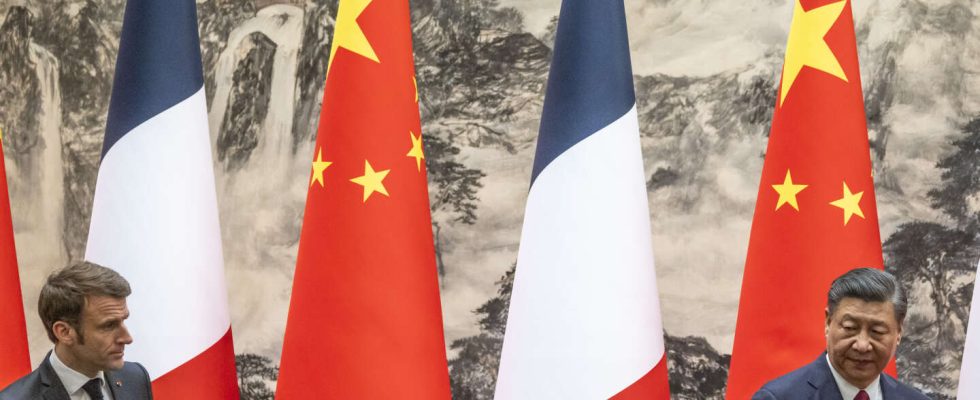Xi Jinping has never visited kyiv and appears to have no plans to do so. The war in Ukraine should nevertheless dominate the tour that the Chinese president is preparing to make in Europe, as the conflict bogs down, twenty-six months after the Russian invasion. The communist leader arrived on Sunday May 5 in the afternoon in France, where he is expected to stay two days before leaving for Serbia and Hungary.
Welcomed at Orly airport by the Prime Minister, Gabriel Attal, Xi Jinping will be officially received Monday morning at the Elysée by the President of the Republic, Emmanuel Macron, for a series of interviews and an official ceremony at the Invalides. A state dinner will then be held to commemorate 60 years of relations between France and the People’s Republic of China. The next day, the Macron and Xi couples will leave for the Hautes-Pyrénées, the department where an ancestor of the Head of State lived, for a stage at altitude at the Col du Tourmalet, presented by the Elysée as “a personal sequence, with their wives, to create the framework for a frank and friendly exchange”.
In April 2023, China arranged a sequence similar to Emmanuel Macron, in Canton (Guangzhou), with a tea ceremony in the former residence of Xi Jinping’s father, who was governor of Guangdong province.
Long uncertain, the trip program was fiercely negotiated: if the Elysée recognizes “not being in control of the agenda” of its host, Paris is satisfied to constitute the first stage of its trip, which affirms its pre-eminence over Belgrade and Budapest, both close to Russia and open to Chinese influence on the continent.
The arrival of the Chinese number one Tuesday evening in Serbia will coincide with the 25e anniversary of the NATO bombing of the Chinese embassy in Belgrade in 1999. Quite a symbol for a leader keen, like Vladimir Putin, to challenge the Atlantic Alliance and the presumed hegemony of the United States.
“Develop the Russian position”
“It is not in China’s interest today to have a Russia that destabilizes the international order (…) It is therefore necessary to work with [elle] to build peace »wants to believe Emmanuel Macron, who said it in a weekly interview The Economist published Thursday May 2. It’s about “to ask China to use its levers to change the Russian position”they say at the Elysée, without having too many illusions about the Chinese posture at a time when the war is getting bogged down, or even risks turning to the advantage of the Kremlin.
You have 72.38% of this article left to read. The rest is reserved for subscribers.

